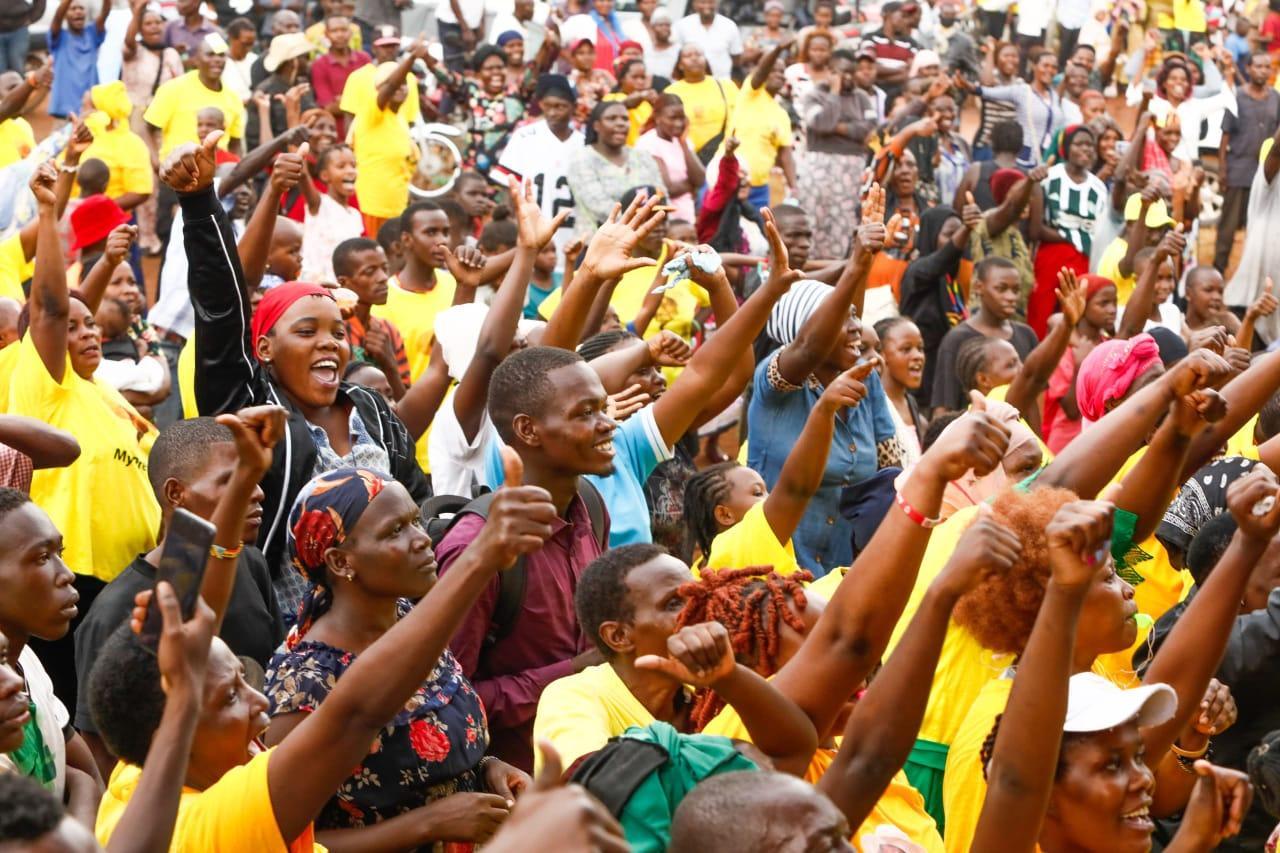Africa-Press – Gambia. Those who really don’t know me and my family history are quick to dismiss me as a UDP hater. What they do not know is that my father was the chairman of UDP in Kombo South for years until 2010 when he retired a year before he passed away due to bad health.
I remembered walking many kilometers to welcome Darboe from Gunjur to Sanyang and Brikama on foot.
Every year, we were super sure we will win only to be heart broken election cycle after election cycle. My father was always depressed a day after every election as Jammeh clinches victory every time.
He is always sure UDP won but Jammeh rigged the polls.
Then as a UDP sympathiser,I was heading to The Gambia to attend UDP’s impending victory celebrations against Barrow in the 2021 polls.
I bought an emergency ticket because I was so sure of victory.A lamb barbecue and good food was lined up for the celebration day after elections when our victory would have been announced.
I was in Paris on transit to Banjul hours later when I checked BBC News online to see Barrow winning with a land slide.
Biggest disappointment of my life.I arrived in a divided, eerily quiet and depressed UDP support base and country.
I will never put myself in that position again.This is why I took a break from being a UDP supporter.
I am tired of heartbreaks. I have suffered enough losing every time as a UDP supporter.
We won as a party when Barrow won in 2017 and because we want one man to be a president so badly, we messed up big time instead of working with Barrow to strengthen the party and consolidate democratic gains.
Alhasan Darboe
US
The voice of democracy – “let my people go”
Dear Editor,
The rugged road towards authoritarian rule often surreptitiously begins with baby steps of the enforcement of laws that restrict democratic space and principles, which are frequently justified by concerns for national security and public order.
This path has previously been walked by individuals (even governments) such as Mr Sang Corea, a notorious and enthusiastic enforcer, and Ousman Sonko, a former Minister of Interior and many others. For those who are still out there, the statute of limitations doesn’t apply – they can any day end up ‘dans la même’.
History provides valuable lessons on such matters that are unfortunately not always applied or acknowledged. The lessons are occasionally disregarded and overlooked by budding authoritarian regimes.
A series of repressing activities with significant governance consequences and the angry, ruthless and overzealous implementation of directives by enforcers can bring a governance system under the scrutiny of international jurisdiction that extends beyond local boundaries to countries as far as the USA, Switzerland, and the UK. Human rights maintain a universal recognition, even within undemocratic legal frameworks.
Some laws implemented under the guise of “security reasons” or “enforcing public order” are globally recognised as deliberately designed to serve authoritarian interests. Actions such as torture, the mistreatment and manhandling of citizens are never immune to prosecution, including in jurisdictions beyond where they occur.
Continuously documenting and reporting such incidents, made easy by social media, help preserve evidence for historical record and future consideration.
Addressing systemic issues in governance – such as corruption and queries raised in accumulating audit reports, the “gerrymandering” of the national ID card jurisdiction, costly access to affordable services and commodities, opaque contract negotiations of strategic national assets, ethnic and aggressive political rhetoric, and economic challenges impacting the cost and standard of living – is more essential for maintaining public trust and appeasing citizens.
Focusing on meaningful improvements in the conditions of the citizens is more effective than attempting to suppress citizens’ frustrations or ignoring their concerns, which may lead to further governance failures and abuses. The reliance on manufactured truth to justify murky matters of public concern serves only to increase public distrust of a complacent system of government.
Specifically, the GALA movement should be seen as an embodiment of national dissatisfaction with perennially unaddressed governance issues. It will be more useful to recognise their demands as representatives of concerned citizens.
Suppression only emboldens and generates national (and international) empathy, as they are gradually seen as victims of undemocratic laws and the attempt to curb legitimate demands.
Could a better scenario have been one of simply allowing the delivery of their letters of concern to relevant authorities and a subsequent peaceful dispersal? The other side of that is to stir and stoke more protests and resistance – and with greater frequency and preponderance.
Navigating the waters of governance in a democratic dispensation is not always about the application of the letter of the law but the consideration of its spirit. History attests to this fact.
Giving critics and criticisms and concerns of citizens a serious consideration is part of good governance.
With a trend of protests, detentions and suppression of dissent in a country, the booming voice of democracy echoes the spiritual song of “Let My People Go” – a voice that inevitably prevails.
Just Thinking Aloud.
Lamino Lang Coma
Source: The Standard Newspaper | Gambia
For More News And Analysis About Gambia Follow Africa-Press






